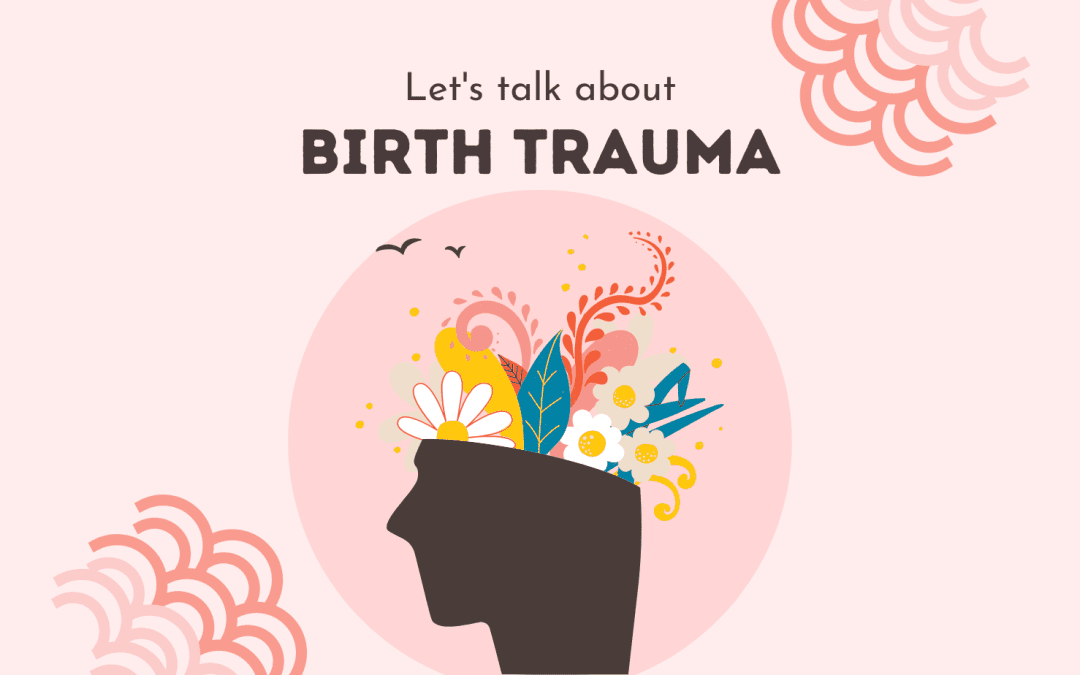What is birth trauma?
Birth trauma is trauma that occurs before, during or after childbirth. It can be different for everyone, and it may not occur until quite some time after the birth.
Birth trauma can be physical or psychological, or it may be a combination of both. It’s not just about the process of giving birth, it’s also about how the person feels afterwards.
Psychological trauma associated with childbirth
This refers to distress or negative feelings, and research shows it affects one in three people who give birth. It can also impact on others who were at the birth, or who are supporting the birthing person.
The effects of this can be far reaching and long lasting. When things haven’t gone well, people can feel unsupported and alone, and this can lead to feelings of anxiety, depression and other mental health problems.
You or your baby don’t have to have experienced risk of death or injury to feel traumatised. Even if your birth was considered “normal” by health professionals, feelings of trauma that you may have are valid and you deserve to be able to access the help you need.
The Australasian Birth Trauma Association lists some examples of things that may contribute to feelings of birth related trauma:
- Complications affecting you or your baby during pregnancy, childbirth or soon after
- Fear for yourself, your baby or your partner
- Feeling out of control or forced into making decisions about care
- Having procedures performed without informed consent
- Needing emergency interventions such as an emergency caesarean or an assisted delivery (forceps or vacuum)
- Experiencing significant pain
- Feelings of not being listened to or respected, e.g. having concerns dismissed and feeling judged or criticised
- Feeling alone or unsupported by your partner or health professional
- Having a long, difficult labour or a very quick delivery
- Being separated from your baby, e.g baby needing to be in a higher care setting such as NICU/special care
- Having a premature baby
- Not feeling informed
- Any other shocking or unexpected experiences during birth.
Seeking help for psychological trauma around childbirth
You can talk to your midwife or GP – they can do a referral to the Maternal Mental Health Service.
The Australasian Birth Trauma Association has some great resources for self help in the first few weeks or months – click here.
Mybirthstory is another great source of information, including a comprehensive list of organisations in New Zealand that can be contacted for help – click here.
You are not alone – these feelings are common, and there is help and support available.
Physical trauma associated with childbirth
Physical trauma as a result of childbirth includes injuries such as pelvic floor muscle damage and perineal tears, as well as prolapse and problems with Caesarean section scars.
Perineal tears:
We know that up to 90% of people giving birth vaginally experience some kind of tearing of the perineum (the skin between the vagina and the anus). Many of these tears will require just a few stitches and heal without problems, but for some it can lead to problems such as pain.
Pelvic floor muscle damage:
Around 30% of people giving birth vaginally will experience damage to the pelvic floor muscles.
Symptoms that can indicate pelvic floor injury include:
- Loss of bladder or bowel control
- Trouble emptying the bowel
- Pain with sex
- Reduced sensation with sex
- Feelings of heaviness or bulging around the vaginal entrance
- Ongoing pain around the site of an episiotomy or perineal tear
Seeking help for physical trauma around childbirth
If your baby was born on or after 1st October 2022, and you experience a physical birth injury, you are now able to access funding from ACC to see a pelvic health physiotherapist. This funding covers any kind of tearing (perineal, labial, pelvic floor etc) meaning many people now qualify for help. See here for more information.
Pelvic health physiotherapists have special skills and training to help with these types of injuries. They can carry out a detailed assessment and give you the appropriate rehabilitation exercises to get you back to doing what you want to do. They give you advice about return to exercise, and help you with any bladder, bowel or sexual problems. They will also give you the information you need to help prevent problems developing in the future.
Physical injuries can cause psychological distress too. Getting access to the right help can make a huge difference to quality of life for you and your loved ones.
For more information about pelvic floor injuries during childbirth click here

